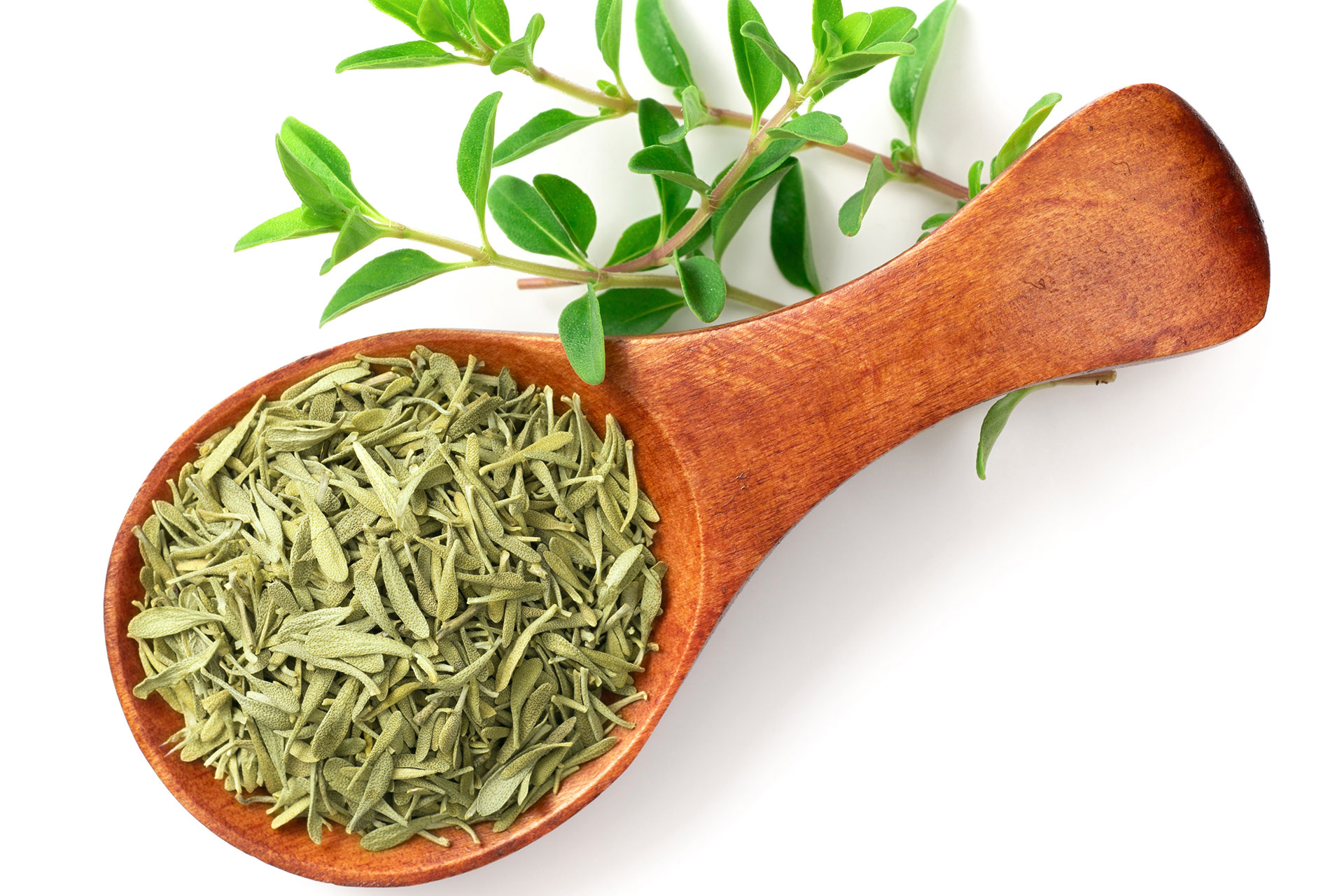Health Benefits of Thyme
Thyme is an herb from the mint family that you probably recognize from your spice set, but it’s so much more than an afterthought ingredient. Its range of use is impressive. Ancient Egyptians used it in their embalming practices, while ancient Greeks used it as incense. Thanks to its distinctive taste, thyme has remained a culinary staple to this day. But thyme also boasts a slew of helpful medicinal qualities. Read on to learn about the health benefits this humble spice offers.
Fight Acne
If you’re tired of trying over-the-counter acne medication with no good results, you may be in luck. Thyme is known for its antibacterial properties, and it might have a future as an acne-fighting ingredient. When thyme is soaked in alcohol for days or weeks, it turns into a solution known as tincture. This solution has been found to have antibacterial activity against P. acnes, the bacteria thought to cause acne.
Lower Blood Pressure
A study using a species of thyme harvested in Pakistan in Afghanistan found that an extract was able to significantly lower heart rate in rats with high blood pressure. It was also able to lower their cholesterol. Still, human studies are needed to confirm these effects.
Alleviate Cough
Thyme essential oil, which is obtained from its leaves, is often used as a natural cough remedy. In an older 2006 study, a combination of thyme and ivy leaves helped to alleviate coughing and other symptoms of acute bronchitis. A 2018 study found a combination of thyme and primula extracts to reduce inflammation and mucous in an animal model. Next time you’re faced with a cough or sore throat, try drinking some thyme tea.
Repel Pests
The Environmental Protection Agency says that thymol, a kind of thyme oil, is also an ingredient in many pesticides, and is commonly used to target:
- Bacteria
- Viruses
- Rats
- Mice
- Other animal pests
A 2021 study showed thyme essential oil to be effective against adult mosquitoes and their larvae. You can make a homemade repellant by mixing 4 drops of thyme oil for every teaspoon of olive oil, or mixing 5 drops for every 2 ounces of water.
Aromatherapy
You can now find many organic and natural skin care products at most retailers that contain thyme. Thyme is also a popular ingredient in natural deodorants and is often included in potpourri. You can use thyme essential oil in an aromatherapy diffuser to potentially reap the benefits of its mood-boosting properties.
Culinary Uses
Thyme is a wonderful ingredient that’s used in cuisines around the world, particularly in France, Italy, and across the Mediterranean. Thyme is the main ingredient for many pesto sauce recipes, which you can use as a condiment or add to pasta or rice. Fresh leaves or whole sprigs can be used while preparing meat or poultry. This is also an excellent ingredient to use with fish. Thyme may also have a positive effect on the safety and longevity of cooking oils. A 2012 study indicated that thyme extract might prolong the stability of sunflower oil at different temperatures as well as provide antioxidant effects.
Thyme is a versatile herb with a broad wheelhouse of beneficial uses. If you’re interested in diving into the benefits of thyme, you may want to explore complementary and alternative medicine by finding a qualified professional, like a naturopath or osteopath, in conjunction with conventional treatment. It can enhance your cooking, your health, your skin, and even the scent of your space. It might be about thyme to add this multipurpose plant to your toolkit.










